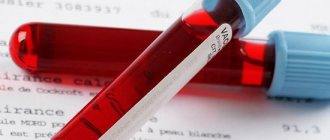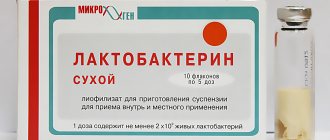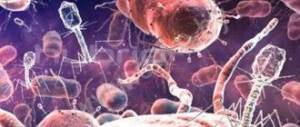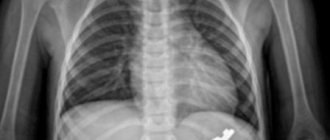Poisoning, especially food poisoning, always leads to intoxication - disruption of the functions of internal organs and systems due to the penetration of toxins into cells. Weakness, nausea, lack of appetite are a common picture after poisoning. These symptoms indicate that some organs, for example, the liver, intestines, and stomach, after removing toxic substances, are not yet ready to work at full capacity.
The recovery period can take several days or even weeks - it all depends on the cause of poisoning and the degree of intoxication of the body. At this time, all efforts should be aimed at cleansing the internal organs of toxin residues and restoring their functions. Repopulation of the intestinal flora with beneficial bacteria, relieving irritation in the stomach and cleansing the liver are the primary and necessary conditions for rapid recovery from poisoning.
1Diet as a prerequisite for recovery
There are several general recommendations that will help restart your stomach after poisoning. The first thing you need to pay attention to is nutrition.
.
When the body is intoxicated, the tissue structures of the gastric organ are damaged. Therefore, the cells that produce the mucus and gastric juice necessary for processing food need rehabilitation
. During this period, the patient may suffer from gastritis and pain associated with nervous stomach syndrome.
Thus, any damage (mechanical or chemical) to the membranes of the organ causes repeated irritation of the system. It is best to avoid using:
- acute;
- salty;
- fried;
- smoked;
- sour.
Recovery from poisoning largely depends on the quality of the food. It is important to follow the diet for several weeks (although the timing, of course, depends on the degree of intoxication)
. You need to eat often enough (up to 6 times a day), but portions of food should not exceed 300 ml.
Toxic material entering the body leads to dehydration of vital systems. Therefore, rehabilitation requires urgent replenishment of lost fluid. To do this, you should drink at least 2 liters within 24 hours
.
Usually in such cases, drink several glasses of water 30 minutes before meals. After a meal, it is not advisable to take any drinks for 1 hour
.
In this way, the stomach will be properly prepared to receive food and digest it
. To maintain electrolyte balance, you will need mineral water.
2 Useful and harmful products
Acute food poisoning generally lasts no more than 3 days. During this period, it is necessary to direct all efforts to remove harmful substances from the body. Therefore, any food will only interfere with this process
.
Basically, doctors recommend taking large amounts of water, special medications, and sweet tea. Dry white bread is allowed
.
After an exacerbation, thin oatmeal or rice porridge is introduced into the diet
. They have the unique property of enveloping the walls of the stomach and neutralizing alkalis, which are decomposition products.
A gastroenterologist will prescribe how to start the stomach after severe poisoning. However, experts have developed a general list of products that almost every victim is allowed to take:
- buckwheat porridge;
- mashed potatoes without butter or vegetable oil;
- feta cheese;
- boiled or stewed sea fish.
Fruits in the form of bananas and baked apples are not excluded from the menu. After a week, the patient’s diet is expanded
.
He can safely eat chicken, veal, and rabbit. Intoxication primarily leads to dysfunction of the digestive department
. Therefore, you cannot do without taking fermented milk products.
New beneficial microorganisms populating the organs will improve the microflora of the system. This is facilitated by the consumption of cottage cheese, kefir, curdled milk, yogurt
.
They should not be included in the diet from the first days of the lesion. Food should not be hot
.
After obvious signs of recovery, it is allowed to drink non-concentrated juices and jelly. It will be very difficult to start the gastrointestinal tract in the first week when using animal proteins. They are difficult to digest
.
Many harmful components are released in the body
. Doctors categorically do not recommend using:
- canned food;
- fresh bread;
- sparkling water;
- sausages;
- millet, pearl barley;
- baking;
- coffee.
The patient will get a stomach ache if he takes berries, vegetables and fruits raw. Therefore, it is best to refrain from them for now. Drinking alcoholic beverages and smoking are prohibited during intoxication.
3How to speed up the rehabilitation process?
In order to optimize the functioning of the body, sometimes one diet is enough. But there are many ways to help cope with violations faster. The doctor often recommends enzyme products
.
They contain enzymes
.
They take on the function of natural substances
.
Thus, all products entering the body continue to be processed. At the same time, one's own cells are gradually renewed
. Among the medications are Pancreatin, Panzinorm, Creon.
Do not neglect traditional medicine. Herbal decoctions will help quickly remove toxic substances from the body and strengthen the immune system.
.
The most commonly used are chamomile, calendula, rose hips, and black currant leaves
.
And regarding sweets: doctors strongly do not recommend consuming confectionery and other similar products, including honey
.
Recovery from poisoning will be much faster if you avoid fatty foods. To process such products you will need a lot of gastric juice
. A gastroenterologist will explain how to recover from poisoning with painful symptoms in the liver area. In case of serious consequences, constant medical supervision is necessary.
Unfortunately, no one is immune from food poisoning. Stale or low-quality products are not such a rarity in our age of high technology
.
After poisoning, any organism requires a period of adaptation and recovery
. If you consulted a doctor, he will undoubtedly recommend further treatment to restore digestion and diet.
But what if the disease was mild and everything was treated at home? How to restore the stomach after poisoning at home? First of all, in any case, you will have to follow a diet.
Why do you need a therapeutic diet after poisoning?
During illness, among other things, the gastric mucosa is affected. The cells responsible for producing mucus and gastric juice need time to recover
.
The acidity of gastric juice temporarily decreases. It is possible that inflammation of the mucous membrane (gastritis) may develop, but most often pain occurs due to “nervous stomach syndrome”
. Irritation caused by mechanical factors - either fibrous foods, or chemical ones - spicy, fried, smoked, sour, leads to painful spasms.
Restoring digestion after poisoning primarily depends on the quality of food and its digestibility in the stomach. Therefore, it is extremely important to follow the principles of a healthy diet for one to two weeks.
- Eat often, but little by little. The stomach has a small volume; in addition, it digests the contents well only if it is 2/3 full. therefore, it is preferable to eat 5-6 times a day in small portions of 250-300 ml.
- Replenishing fluid loss. Drink at least 2 liters of water per day. You need to drink one or two glasses of water half an hour before meals, and after eating you should not drink for an hour
. This is necessary to prepare the stomach for food intake and the proper secretion of gastric juice.
It is also useful to drink mineral water to restore electrolyte balance in the body.
Menu examples for the day
To restore intestinal microflora, build up the mucous membrane and the proper functioning of the liver and restore strength, it is necessary to ensure proper nutrition. Food should enter the body in small fractional portions. The minimum meal intake is five to seven times a day.
No. 1. For breakfast, eat low-fat cottage cheese. For lunch they prepare borscht from sauerkraut. For dinner, boiled low-fat sea fish is suitable. Boiled vegetables are used as snacks - carrots, broccoli, zucchini, eggplant. No. 2. Drink natural yogurt for breakfast. For lunch they cook chicken. Potato croquettes or mashed potatoes are prepared for dinner. Bananas and fresh or baked sweet apples are perfect snacks. No. 3. Buckwheat porridge is cooked for breakfast. For lunch, make vegetable or chicken soup. Vegetable stew is prepared for dinner. Wheat crackers, puree soups, lettuce leaves seasoned with olive or sunflower oil are used as snacks.
The diet is discussed in detail in the video
What foods can you eat after poisoning?
Typically, the acute process of food poisoning lasts 2–3 days. At this time it is better not to eat anything at all, especially if there is no appetite
.
Drink more water, pharmaceutical solutions to maintain salt balance, weak green tea with sugar. You can eat dried white bread
. Then liquid porridges with water are introduced into the diet: oatmeal, rice. In addition to the enveloping effect, they perfectly neutralize alkaline decomposition products in case of poisoning.
How to restore stomach function after poisoning with the help of diet? In addition to the cereals mentioned, the following food groups are recommended:
- cereals: buckwheat and corn;
- mashed potatoes without oil;
- salted cheese;
- boiled or stewed sea fish;
- fruits are consumed in the form of puree: bananas, baked apples, dried fruit compotes;
- It is useful to eat borscht made from sauerkraut; some salty foods are also allowed: herring or sprat;
- after a week, boiled or steamed meat is introduced - lean chicken, rabbit, veal;
- Cottage cheese is a useful dairy product during this period.
The temperature of the food should be pleasantly warm, but not hot. From liquids, it is good to drink jelly, green tea, and then add diluted juices.
The entry of bifidobacteria into the body is necessary in order to restore the microflora of the stomach and intestines. Kefir, yogurt and yogurt begin to be consumed 3-5 days after the stomach calms down.
Principles of nutrition
Within one to three days after food poisoning, the human body is considered weakened. In order to restore the necessary functioning, you need to adhere to a strict diet. It is strictly forbidden to consume fatty and very heavy foods, fast food, chips, soda, sweets, foods containing dyes, food that can destroy the mucous membrane of the stomach and intestines.
Alcoholic beverages, baked goods and very spicy foods remain prohibited. You need to limit your consumption of whole cow's milk. You need to eat in small, fractional portions. Meat delicacies and vegetables must be prepared in a dietary way, steamed or in crushed puree form.
In order to quickly restore digestion, it is necessary to ensure plenty of drinking. With water, all the toxins accumulated in the body are released. After poisoning, a person needs to replenish the lost volume of fluid.
Doctors recommend drinking black and green tea, infusions of medicinal herbs, various compotes and fruit drinks.
Authorized Products
Buckwheat; Rice; Boiled potatoes; Salty cheese; Low-fat sea fish; Boiled chicken; Bananas; Red ripe apples; 1% cottage cheese; Natural yogurt;
Prohibited Products
Canned food; Smoked sausages; Millet; Pearl barley; Coffee; Chocolate; Fresh berries; Raisin; Prunes; Grape; Oranges; Hot peppers; Black bread; Seasonings; Radish; Legumes; Radish; Beet;
What not to eat after poisoning
At first, you should limit animal proteins. This food is difficult for the human body to digest, and then many harmful metabolic products are released. Such a load interferes with the recovery of the stomach after poisoning
. Gastroenterologists do not recommend consuming meat, eggs, milk and fermented milk products for one to two weeks after the acute course of the disease. It is also strictly prohibited to eat the following foods during this period:
- all generally accepted junk food: canned food, sausages, smoked meats;
- fried, pickled, spicy or food with a lot of spices;
- pears, plums, grapes;
- millet, pearl barley, barley porridge, fresh bread, pastries;
- coffee, soda;
- sweets - they do not recommend consuming even such a healthy product as honey;
- fatty, including butter and vegetable oils;
- vegetables, fruits, berries in raw form.
It is also necessary to refrain from drinking alcohol and smoking. Alcohol and nicotine have a destructive effect even on a healthy stomach, let alone an organism that has suffered poisoning.
We must act quickly
When poisoning occurs, you need to act quickly:
- Clear the stomach of poisons by rinsing and taking absorbent substances after vomiting.
- Drink more water with soda added (2 tbsp per liter) and start treatment as soon as possible.
- Ensure the restoration of normal functioning of the gastrointestinal tract with the help of a therapeutic diet.
Even if the poisoning was mild and medical attention was not required, it is worth consulting with your doctor about further restoration of the stomach after poisoning.
Medicines to help your diet
How to restore digestion after poisoning? Following a diet is the only correct answer to this question. But to make the process more efficient, you can help the body a little.
To improve digestion, doctors recommend using enzyme preparations as replacement therapy. The enzymes contained in them will help the stomach and intestines until the production of your own digestive juices returns to normal. Take Pancreatin, Creon or Panzinorm 1-2 tablets immediately after meals.
It is useful to drink herbal infusions:
- one tablespoon of chamomile per glass of boiling water, drink ½ glass 3-4 times a day;
- calendula two tablespoons per glass, take 1/3 glass three times a day;
- A decoction of rose hips and black currant leaves can be drunk throughout the day instead of tea.
If after poisoning you are haunted by constant pain in the stomach or liver, consult a doctor! Perhaps the consequences of poisoning were more severe than you expected, and detailed diagnostics and professional medical assistance may be needed.
It is not enough to cure the acute stage of food poisoning. It is important to remember that your stomach has become extremely vulnerable. Therefore, support him with a therapeutic diet, herbal remedies and digestive enzymes.
. After the end of the recovery period, gastroenterologists recommend abstaining for some time from harmful foods: fried, smoked, fatty and spicy foods, as well as highly carbonated drinks.
Poisoning of the body with chemicals, stale food or waste products of pathogenic microorganisms is often accompanied by intense vomiting and disruption of the integrity of the gastric mucosa. All this leads to pain and can provoke the appearance of erosions.
To eliminate such consequences of intoxication, it is necessary to direct efforts to restore the tissues and functions of the digestive system. Let's take a closer look at how exactly this can be done.
ethnoscience
In order not to cause severe intoxication, after poisoning, traditional medicine can be used along with drug treatment. Such recipes quickly relieve weakness and fatigue. Healing herbs can restore intestinal microflora and liver function.
Cinnamon is considered a natural antispasmodic and sorbent. Ground cinnamon is used to prepare the infusion. 0.5 tsp substances are poured into one glass of boiling water. Infuse for fifteen minutes. Then filter and consume warm. Temporary admission is one day. The maximum daily volume is one and a half liters. The root system, flowers and leaves of marshmallow restore the intestinal microflora. The crushed substance in the amount of one teaspoon is poured with half a glass of boiling water. Leave for half an hour, filter, add natural bee honey. Consume one tablespoon four times a day. Dill with natural honey helps remove toxins. 1 tsp dry dill seeds are poured with 1.5 cups of boiling water. Leave for 2-3 minutes. Simmer on fire for two minutes. Strain, add natural honey, consume in small portions throughout the day. The maximum daily volume is 1 liter. 1 tsp. dry wormwood and yarrow are poured into 500 ml of boiling water. Infuse for fifteen minutes. Strain and divide into five equal parts. Consume throughout the day. To prepare lemon water you will need three lemons, distilled water and natural honey. The ingredients are mixed together. The infusion is consumed throughout the day. Eliminates high acidity and the formation of gastritis.
Why does my stomach hurt after poisoning?
Most poisonings occur due to toxic substances entering the gastrointestinal tract. The stomach is the first to take the blow, which provokes the appearance of pain.
. The reason for this may be the following factors:
- activity of pathogenic microorganisms;
- violation of acid-base balance;
- irritation of the walls of the organ;
- rejection of the mucous layer;
- formation of ulcers and erosions.
Important: toxins provoke the destruction of the mucous membrane that protects the endothelium. Then toxic compounds penetrate into the bloodstream, causing inflammation and disruption of tissue trophism
. In severe cases, necrotic processes may develop.
Due to the negative effects of toxins on the stomach, gastritis or gastroduodenitis often develops. The digestive and motor function of the gastrointestinal tract also deteriorates, and dysbiosis occurs
. Vomiting can cause vascular ruptures and damage to the mucous membrane. All this leads to the occurrence of pain and its persistence for some time after poisoning.
The nature of stomach pain after poisoning
Stomach pain can be of a different nature, depending on the cause that triggered its occurrence.
There are several main types of pain syndrome:
- Sharp, intense. It is predominantly paroxysmal in nature, which is caused by the action of toxins or pathogenic microorganisms. The possibility of formation of erosions and ulcers cannot be excluded.
- Dull, aching. It occurs when the inflamed walls of the gastrointestinal tract are irritated, persists after intense vomiting, and can bother the patient for several days.
- False. There is a feeling of internal pressure and distension of the stomach, which is caused by its overcrowding or swelling.
- True. The nerve receptors of the organ are irritated, but the sensations are often mild.
The localization of pain can also be different:
- In the epigastric zone. The sensations are concentrated directly in the stomach itself, and problems with the pancreas may also occur.
- Closer to the navel. The small intestine is affected, its motor function is impaired, rotting food provokes increased gas formation.
- With irradiation to the right hypochondrium. Indicates an enlarged liver due to increased load on it.
Gastric complications
Digestion suffers from the effects of toxic substances on the gastrointestinal tract. After food poisoning, the entire digestive system suffers. An adult needs to insure himself against ingesting low-quality alcohol and expired food.
During intoxication, the poison first enters the stomach and only then into the intestines. The presence of the toxin is characterized by painful spasms and burning.
Causes of pain:
- Reproduction and waste products of pathogenic bacteria;
- Violation of gastric microflora and acid-base balance;
- Irritating effect of microorganisms on the walls;
- Detachment of the gastric mucosa;
- Erosion of the inner layer and formation of ulcers.
Toxins destroy the mucous membrane of the organ, then enter the blood. They penetrate into tissues through blood vessels, causing inflammation and disrupting the functioning of the system. Necrosis may develop. Toxins often provoke gastritis and gastroduodenitis. Acute vomiting damages the mucous membrane, and vascular rupture may occur.
Pain after poisoning
Stomach pain is individual in nature depending on the cause of poisoning. Each poison has distinctive characteristics and effects on the digestive organs.
Types of pain syndromes:
- Intense, acute, characterized by rolling pain, attacks, and ulcers form on the mucous membrane.
- An aching, dull type of pain occurs when there is an irritating effect on the walls of the gastrointestinal tract and lasts for several days.
- False manifests itself during inflammation of the stomach walls, swelling occurs.
- True occurs when nerve receptors are damaged.
The location of pain is not always in the organ area:
- In the center of the organ suggests damage to the stomach and pancreas;
- In the navel area it indicates infection of the small intestine and fermentation of food;
- With an enlarged liver, the pain shifts to the right side under the rib.
Principles of treatment
Treatment after poisoning is aimed at eliminating the negative effects of toxins, their final removal from the body and stimulating the processes of regeneration of damaged tissues. Thus, the main goals of therapy are:
- final removal of toxins from the body;
- relief of pain symptoms;
- creation of a protective layer for the endothelium;
- restoration of gastrointestinal functions;
- stimulation of mucosal regeneration;
- normalization of microflora balance.
Similar goals can be achieved through the use of a complex of therapeutic measures. The main focus of therapy is taking medications, but it is advisable to reduce the amount of medications used to a minimum so as not to overload the body with chemicals.
Important: additional measures include physiotherapeutic procedures, diet, as well as various folk remedies that do not contradict common sense.
Drug therapy
It is not recommended to use medications without a doctor's prescription, with the exception of sorbents. Incorrectly selected medications can aggravate the problem and provoke even greater intoxication
. In addition, some substances affect the properties of the blood, which, if blood vessels are damaged, can lead to internal bleeding.
To restore the stomach after poisoning, the following groups of drugs can be prescribed:
- Sorbents: Activated carbon, Polysorb, Smecta. Binds and removes toxic substances from the body.
- Analgesics and antispasmodics: No-shpa, Papaverine, Spazmalgon. Relieve pain symptoms
. The use of Analgin is not recommended. - Enveloping agents: Phosphalugel, Almagel, Maalox. They create a protective layer for the walls of the stomach and stimulate its regeneration.
- Probiotics: Linex, Hilak Forte, Bifidumbacterin. Helps restore the balance of microflora and fight the effects of dysbacteriosis.
- Enzymatic preparations: Pancreatin, Festal, Mezim Forte. They relieve the burden on the pancreas, support the secretory function of the gastrointestinal tract and promote normal digestion of food.
- Prokinetics: Motilium, Passazhiks, Trimedat. Stimulate peristalsis, restore the motor function of the digestive organs.
Physiotherapy
In case of serious poisoning, it is additionally recommended to undergo a course of physiotherapeutic treatment. It stimulates regenerative processes, relieves pain, improves tissue trophism, and also helps restore the functions of the gastrointestinal tract.
The following procedures are most often prescribed:
- electrophoresis with drugs;
- magnetic therapy;
- laser therapy;
- galvanotherapy;
- balneological procedures;
- massage.
Folk remedies
In order to normalize the functions of the stomach and restore its mucous membrane, a variety of folk recipes are actively used. The most effective means are:
- decoction of flax seeds;
- oatmeal jelly;
- White clay;
- rice starch;
- parsley;
- Melissa;
- caraway;
- Dill seeds;
- barberry;
- cloves with milk;
- knotweed;
- thyme;
- birch mushroom.
Diet therapy
During the period of treatment, you should reconsider your diet and turn to diet therapy. Food should be as healthy as possible and easy to digest. In order not to create additional stress on the gastrointestinal tract and not to provoke repeated stomach cramps, you need to adhere to the following recommendations:
- preference is given to liquid dishes, jelly, puree;
- the menu is based on liquid porridges, steamed cutlets, boiled and stewed vegetables, pureed soups;
- All solid foods are temporarily excluded;
- fatty, spicy, sour, fried foods are excluded from the menu;
- smoked meats, sweets, and pickles are prohibited;
- special attention is paid to the drinking regime;
- meals should be small and frequent;
- food and drink are served warm.
If you follow the doctor's instructions and nutritional rules after intoxication of the body, it is possible to restore normal stomach function in a short period and get rid of pain. In the future, you need to adhere to a healthy diet and take care to prevent new poisonings, especially in the first month after treatment.
Adults and children often encounter problems such as food poisoning. The cause of the pathological process is poor-quality or expired food
.
Poisoning negatively affects not only the stomach, but also other internal organs
.
One of the dangerous conditions of intoxication is dehydration
. Therefore, everyone should know how to restore the stomach after poisoning.
Prevention
The best thing you can do to avoid getting poisoned is to remain vigilant. The following are tips that you can follow to avoid poisoning.
- It is necessary to avoid consuming products that have expired.
- When purchasing milk, you must check the integrity of the packaging.
- Vegetables, fruits, and herbs should be washed well.
- Products such as meat and fish must undergo proper heat treatment.
- Food must be stored properly in the refrigerator.
- It is not recommended to store prepared dishes for more than three days.
- Kitchen hygiene is also of great importance. Crockery and cutlery must be clean.
- It is worth exterminating all insects that are found in the kitchen. Flies, cockroaches, and mice are carriers of pathogenic bacteria and microbes.
State of the body after a pathological process
When intoxication of the body occurs, a number of disorders and changes are observed. Therefore, in such cases, treatment and a recovery phase are always required.
In the acute course of the disease, the internal organs begin to actively fight the toxic components. This process is accompanied by nausea, vomiting and diarrhea. But as a result of such cleaning, dehydration occurs due to the loss of large amounts of fluid and essential vitamins.
Intoxication always leads to disruption of the intestinal flora. Harmful bacterial agents begin to multiply intensively and destroy beneficial ones.
. This disrupts the digestive process and develops dysbacteriosis.
In case of poisoning, toxic components penetrate into the blood and spread throughout the body. This process leads to damage to cellular structures and disruption of the functionality of internal organs. The most adverse effects occur on the liver, nervous system and heart.
Intoxication of the body in 80% of all cases is accompanied by an increase in temperature values. Sometimes they reach 40 degrees. At such rates, proteins simply begin to fold.
Harmful bacteria that have entered the gastric cavity lead to the development of inflammatory processes and irritation of the mucous membranes. Against this background, signs such as pain and burning appear.
Often, after severe poisoning, the pancreas begins to suffer. This organ is responsible for the production of enzymes
. In the absence of emergency care, inflammation develops there, which in medicine is called pancreatitis.
The main impact goes to the liver. Its function is to filter the blood and trap toxins
. Therefore, during recovery it is necessary to pay special attention to this organ.
Based on this, we can conclude that poisoning is not an annoying disorder of the digestive tract. This is a serious pathological process that requires special attention from humans.
Principles of gastric restoration
Many patients wonder how to restore stomach function after poisoning. To resume your previous state, you need to follow some tips.
Restoration of the gastric cavity
How to restore your stomach after food poisoning? First of all, you need to know how to normalize the water-salt balance, which has been destroyed due to a large loss of fluid. To do this, doctors advise taking mineral water without gases or purified water with added salt.
. You can also use Regidron solution for 2-3 days.
Restoring the stomach after poisoning should also be aimed at eliminating painful sensations and relieving discomfort. A herbal decoction based on chamomile or calendula will help solve this problem.
.
To prepare it, just take 2 tablespoons of the dried plant and pour a cup of boiled water. Let it brew for half an hour and then strain
.
Take 100 ml 3 times a day
. Green tea with mint helps relieve pain.
After the acute period has passed, you can include unsweetened tea, rosehip decoction, and dried fruit compote in your diet. This product has a diuretic effect, which allows you to get rid of remaining toxins as quickly as possible.
How to start a stomach after poisoning? To restore digestive function, doctors recommend drinking chicory infusion. To make it you will need chicory powder in the amount of 2-3 spoons
. It is poured with boiled water and allowed to brew for about 8-10 hours. The portion is divided into 2 doses.
To resume stomach function, you need to adhere to a special diet during the recovery period. Food should be homemade and easily digestible
.
Food must be eaten warm
. The serving size is 100-150 g. At the same time, you should eat as often as possible, up to 5-6 times a day.
After poisoning, you should eat foods that have enveloping properties. This group includes liquefied porridge and jelly. You must follow this diet for 7 days.
. You should return to your normal lifestyle gradually.
Liver restoration
It is important to know not only how to restart the stomach after poisoning, but also how to cleanse the liver of toxic components. Even if the intoxication was mild, this organ continues to fight the adverse consequences
. The main function of the liver is to filter beneficial and harmful components that enter the body.
The recovery period in this case is carried out in three directions.
- Following a strict diet. It is strictly forbidden to eat fatty and fried foods with a lot of salt and spices
.
It is not recommended to eat foods that contain a lot of starch. Also prohibited are yeast baked goods, broths, legumes, homemade fatty sour cream, butter, coffee, pepper and garlic
.
Ideal products for the recovery stage are cereal porridges, stewed vegetables, apples, natural yogurt, low-fat cottage cheese, and meatless soups
.
You need to eat in small portions 5-6 times a day
. Eating is prohibited after 8 pm. - Application of traditional methods. For food poisoning, infusions based on milk thistle, knotweed, St. John's wort, artichoke, and immortelle help well
.
Their effect is aimed at relieving spasms and the inflammatory process. In case of serious liver intoxication, a decoction of dandelion roots helps well
.
It helps eliminate toxic substances and accelerate the restoration of cellular structures
. It also helps well with intoxication of the body from sea buckthorn, blackberry and rowan fruits. - Carrying out drug treatment. Most often, hepatoprotectors, which include phospholipids, are used to normalize liver functionality. This group includes Essentiale, Enerliv
. This group of drugs has the ability to eliminate any type of destruction that has arisen as a result of intoxication of the body.
Gepabene is considered one of the effective and frequently prescribed drugs. This medication improves the composition of bile and also promotes its discharge into the intestinal tract.
Restoration of intestinal flora
One of the main questions is how to restore the intestinal microflora after poisoning. This process involves the reintroduction of beneficial bacterial agents into the digestive tract.
.
First of all, the whole process begins with changing your diet
. The menu includes products that contain live bacteria. These include fermented baked milk, kefir, yogurt, natural bio-yogurt, and low-fat cottage cheese.
Bifidobacteria are found in baked apples, sauerkraut, and kvass. But only those products that do not contain preservatives or flavors are suitable. Clarified apple juice diluted with water in equal proportions will help remove toxic substances from the intestines.
Restoring intestinal microflora after poisoning in severe cases requires the use of medications in the form of:
- probiotics: Bifidumbacterin, Linex. The composition of the medicines includes live beneficial bacteria
. They not only populate the microflora, but also contribute to their active reproduction in the intestinal tract; - prebiotics: Hilak Forte, Prelax. Such preparations consist of lactulose. This substance adversely affects the activity of harmful bacterial agents, and is also considered a breeding ground for the proliferation of beneficial flora.
What is noteworthy is that this group of drugs can be combined with tablets. Suitable for children from birth, pregnant and lactating women. Treatment continues for 14-20 days.
Main objectives of rehabilitation therapy
After poisoning, the stomach is unable to function fully. Considering what caused the poisoning and how much of the toxic substance entered the stomach, it will be clear how long it will take for the stomach to recover after poisoning. A person who has been poisoned and has experienced all the acute symptoms of the disease will first of all think about how to restore the stomach after poisoning, and what will be required for this.
The main tasks during the recovery period of the stomach after poisoning include:
- protect the liver and remove from it harmful organisms that it absorbed during toxic damage to the body;
- prevent dehydration. This threatens additional complications for the stomach;
- relieve the victim of symptoms resulting from poisoning;
- help the body remove harmful substances from the stomach;
- activate the immune system;
- normalize the intestinal microflora.
How to quickly restore your stomach after poisoning
If the poisoning is not severe, you can self-treat with medications or traditional medicine, as well as spend the rehabilitation period at home.
In this case, it is necessary to carefully monitor your condition, so that the symptoms of intoxication fade away, and not increase them. In the latter case, you will need the help of a doctor. He will give recommendations on how to restore the stomach, cure dysbiosis, and how to avoid inflammatory processes that can lead to chronic diseases.
To restart the stomach after poisoning, perform two or three gastric lavage procedures. They use the standard scheme: dissolve potassium permanganate in a liter of clean water, strain the solution, drink in large sips and wait for the urge to vomit. Take absorbents. These include: activated carbon, smecta, polysorb, enterosgel, motilium, sorbex, etc. Polysorb, enterosgel and smecta are allowed to be taken by women who are carrying a child, during lactation, as well as by children under 12 months.
In order not to harm the stomach in case of poisoning, it is not recommended to drink painkillers. It is difficult for a damaged stomach after poisoning to process such medications. It’s more useful to start using traditional methods. For example, drink herbal tea (from rose hips, mint, chamomile flowers, currants). To do this, pour a tablespoon of herb with a glass of boiling water and leave for 20 minutes. The advantage of rose hips is not only pain relief, but also a diuretic effect. This affects the increased functioning of the kidneys and the removal of toxic substances from the stomach. You can lightly massage the area where pain is felt.
The main method for the recovery period of the stomach after poisoning is to follow a gentle diet, which excludes the consumption of spicy, salty, fatty, fried, and sweet foods. This will help cope with the infection and resume normal functioning of the stomach after poisoning.
After poisoning, the liver takes on an important function - it cleanses the stomach of toxic substances. It does not matter what the severity of the poisoning is - severe or mild form of poisoning, other organs recover faster. She accumulates toxic substances and cannot get rid of them on her own. The recovery process of the stomach takes longer. To do this you will need:
- Use of medications after poisoning. These include hepaprotective drugs based on phospholipids. For example, Essentiale, Gepabene, Enerliv, Phosphogliv. The drugs renew damaged liver cells that were damaged during the fight against toxins during poisoning. The advantage of the drugs is that they are based on herbs, so the outflow of bile occurs more effectively. This helps improve digestion. The duration of administration and the required dosage are determined by the attending physician.
- Dieting. Eating fatty broths, fried and fatty foods, smoked meats, flour, and savory dishes harms the liver. You should avoid such dishes. A person needs to focus on whole grain porridges, non-sour fruits, low-fat cottage cheese, stewed vegetables, vegetable soups cooked in a second broth.
- Application of traditional medicine methods. Brewed dandelion roots will help remove toxic substances from the stomach. Herbal infusions (St. John's wort, milk thistle, immortelle, knotweed) will eliminate the inflammatory process.
A person who has been poisoned should know how to restore the intestinal microflora after poisoning so that side effects such as dysbiosis and chronic intestinal diseases do not occur. This will require introducing good bacteria into the gastrointestinal tract.
Medicines include prebiotics and probiotics. For example, Hilak Forte, Linex, Bifidumbacterin, Lactusan, Bificol, Prelax, Lactobacterin. The drugs contain live bacteria that settle in the intestines. There they multiply, resulting in the restoration of healthy intestinal microflora. The basis of the medicine is lactulose. It has a detrimental effect on pathogenic organisms. At the same time, the immune system is activated. Their list of contraindications is minimal.











